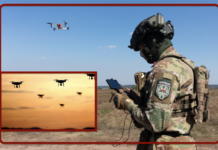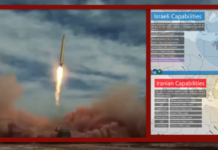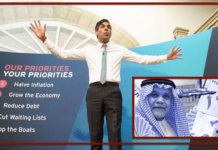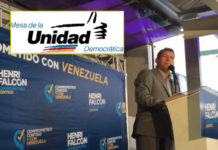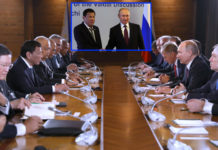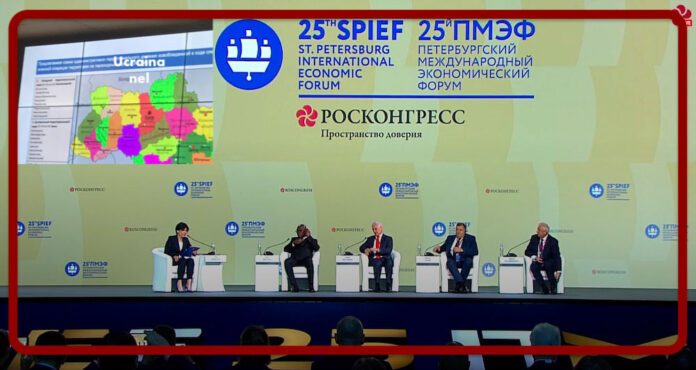
The 25th St. Petersburg International Economic Forum, organised by the Roscongress Foundation, which took place from 15 to 18 June at the Expoforum Exhibition and Convention Centre was the event of the year for the non-Western world. It was attended by 127 countries. These included the UK, China, the USA, France, Italy, Germany and the Netherlands. 2.7 thousand business representatives, more than 1,000 of which are heads of companies, 265 foreign companies, confirmed their participation in the Forum. Invitations to SPIEF 2022 were sent to foreign participants from over 190 countries. Egypt is the host country of SPIEF for this edition, and Finland refused to send its delegation to the event. The USA decided to institutionally boycott the event without withdrawing its delegation. At the end of the Forum, agreements worth almost 550 billion roubles, i.e. over 8 billion euros, were signed.
The motto of the Forum this year was ‘New World – New Opportunities’. Discussions took place in four main areas: New Economic Order: Meeting the Challenges of the Times; Russian Economy: New Tasks and New Horizons; Investment in Development – Investment in People; Modern Technologies for Humanity: Creating a Responsible Future.
Among the initiatives, for the first time, within the framework of the Forum, it was possible to purchase works of art in NFT (non-fungible token) digital format, NFT copies of works by Wassily Kandinsky, Valentin Serov, Vasily Polenov and other famous Russian artists from the collections of partner museums and private collections will be presented at a charity auction, as well as the world’s first NFT version of the NFT bill, which the New People party submitted to the State Duma on 19 May.
Among the sessions, the most relevant was ‘Russia: the next 30 years’. The various speakers on 16 June answered the following questions: How will the world change in the next 30 years? What should Russia look like in order to be successful? On what principles should its economy be built? Who can become Russia’s allies? What can you do now to get on the road to success?
On the first day of 15 June alone, 11 agreements were signed at the Forum: among them – a memorandum of cooperation with the DPR, signed by Alexei Dyumin and Denis Pushilin, agreements signed for: ‘AVV-energy’ investment project. A logistics centre and a plant for the production of wind turbines for areas with low winds will be built in the Uzlovaya SEZ. The investment volume is about 3.5 billion roubles. Production of metal furniture ONLUS ‘Promet’. The investment volume is 2.5 billion roubles, up to 500 new jobs are expected to be created. Manufacture of medical diagnostic equipment. Sonder LLC plans to launch a project in the Uzlovaya SEZ. Investments will amount to about 1.5 billion roubles. And investments of about 12 billion roubles in the third phase of one of the largest greenhouse complexes in Central Russia. TK Tulsky LLC plans to complete the project in 2023, 500 jobs will be created. The construction and start-up of 3 pig breeding complexes in the Efremov, Kurkinsky and Kimovsky districts is planned. The investment volume of Tula Meat Company LLC will amount to about 4.5 billion roubles. Up to 150 new jobs will be created by the end of 2029.
And again: Russia will invest more than 2 trillion roubles in the economy of the DPR in the next two years, Donetsk Prime Minister Vitaliy Khotsenko announced: ‘Thanks to the Russian Federation, we have a fairly large consolidated budget, a development budget of about 100-150 billion roubles. Now all the regions are still working more on the territory of our republic and investing so much money in construction, it is basically trillions. The plan for two years is more than 2 trillion roubles’. On the sidelines of SPIEF-2022, a map of the former Ukraine after the end of the NWO was shown. It should divide the country into several territorial districts for a transitional period of three to five years.
Many technological innovation proposals for example Sberbank, the Russian bank sanctioned in the West plans to introduce biometric payments. After the cyber attacks Sberbank decided to invest in a unique IT campus in Nizhny Novgorod.
And again, a depot and 71 km of tram tracks will be built in Krasnodar by 2026. The Krasnodar Territory has signed 18 agreements worth over 171 billion roubles. Among the main deals is a trilateral agreement on the construction of an industrial park in Krasnodar along Rostovskoye Shosse Street. The investor of the project, AVA Group of Companies LLC, plans to invest 6 billion roubles. It will be home to the production of PVC and aluminium profiles, an enterprise for the processing of recyclable materials for the production of plastic granules, and a plant for the production of non-woven materials. A 3.2 billion rouble pasta factory is to be opened in Krasnodar on a site with an area of over 65.2 thousand square metres.
Three hotel complexes and a catering centre will be built in Sochi. The total amount of investment will be over 63 billion roubles. In a broader sense, Russia plans to integrate rail and air transport for the domestic market.
And food was also discussed: ‘The world population will grow to 10 billion by 2050. This means that food donor countries, like Russia, must realise that there will be more people on the planet to feed. In the five months since we increased food exports, our colleagues have held more than 500 business meetings with friendly countries. We will increase our food exports, we will continue these contacts. We will solve logistics problems, mutual agreements in national currencies. The world needs a global food referee. I call on my colleagues at the UN and my colleagues at the FAO to create an International Food Arbiter that will solve the problem of illegal sanctions that have crippled logistics, the consequences of restrictions on settlements between countries, and ultimately ensure equal access to the food market for all countries,’ said Deputy Prime Minister Victoria Abramchenko at SPIEF 2022
Dmitry Patrushev, the Minister of Agriculture of the Russian Federation spoke on the food-livestock issue: ‘We expect good performance in other sectors: animal husbandry, food and processing industries. This ensures a stable situation in the domestic market and will also enable us to further develop the export potential of the agro-industrial complex’.
Still on the subject of the domestic market: according to the Corporation for the Development of the Far East and the Arctic, more than 180,000 new jobs will be created in Russia’s Arctic regions by 2030, a figure comparable to the population of a fairly large city. Among other things, the number of state-funded posts at universities in the Arctic regions is increasing and a ‘navigator of popular professions’ is being created. In addition, two specialised projects are being implemented to attract personnel to the Arctic regions. The first is the ‘Intra-Arctic Appeal’. A specific job is offered to young people who are finishing their military service. Many already have a specialised secondary education, but so far have no work experience and no future position – on which they rely. In 2022, it is planned to offer work to 25,000 of them. The second project is to attract management personnel to the Arctic. At the same time, candidates are immediately offered the positions of regional deputy ministers, heads of educational projects and health projects. According to this project, around 200 people are expected to be attracted to work as officials.
Among the most important foreign delegations at SPIEF, in addition to Egypt, the host of the edition, was Turkey, where ministers and the ambassador to Russia sat on many SPIEF tables. Other representatives came from various countries of the Western Hemisphere, including Canada, Mexico, Venezuela with a delegation led by Venezuelan Vice President Delcy Rodriguez, the country’s Foreign Minister Carlos Faria and the head of the Central Bank of Venezuela, Calisto Ortega. And again Colombia, Uruguay, Nicaragua delegation led by Finance Minister Ivan Adolfo Acosta Montalvan; Cuba delegation led by Prime Minister Manuel Marrer accompanied by the Director General for System Technologies and Development of the Central Bank of Cuba; also present was the President of the Central American Parliament (PARLACEN), Guillermo Daniel Ortega Reyes; a delegation from Belize. Also noteworthy was the speech by the President, Indian Centre for Promotion of International Intiatives, Core member of Friends for Leadership and Expert Analyst of International Relations, Rishabh Sethi, according to whom: “No one in the world can compare with Russia, India and China when they unite and act together”. He stated that ‘in the digital age, Western propaganda is unable to shake the friendship between Russia and India, because throughout the history of relations, India and Russia have supported and helped each other’. Ali al-Jaberi, Director General of the Representative Office of Iraqi Airlines in the Russian Federation, said that the sanctions of Western countries would not affect the friendly relations between Moscow and Baghdad. Also present was the head of the Afghan Chamber of Commerce and Industry under the Taliban government Mohammad Yunus Mohmand.
Businessmen from Deutsche Bank, Germany, were seen among the stands at the forum. A prominent role was given to Africa among heads of state, Council President Felix Molua, Central African Republic, who said at the opening of the proceedings: ‘We need a unified approach to all, it is impossible to put the interests of some countries above the interests of other countries, wherever people live, every person has the same rights to welfare and a dignified life’. The main players at the forum were China, Iran, Russia, India and Saudi Arabia.
Graziella Giangiulio


